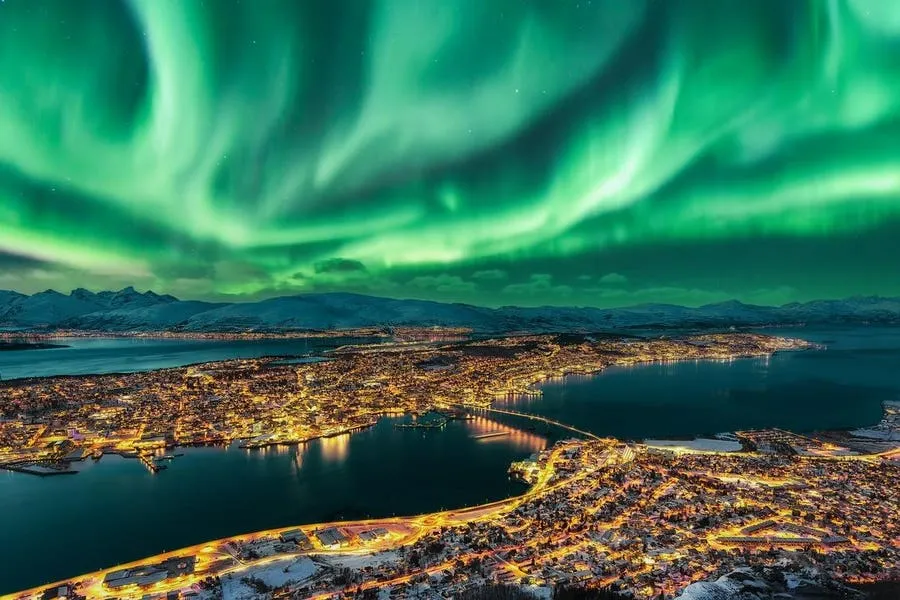Forbes contributors publish independent expert analyses and insights.
You don't have to be Katy Perry to plan an unforgettable astrotourism trip. It is becoming more and more common for travelers to plan trips around specific natural phenomena, seeking out unforgettable once-in-a-lifetime experiences like viewing a solar eclipse or catching a glimpse of the Northern Lights over plotting a music festival or museum-packed itinerary abroad.
The thing about astrotourism, though? You've got to be intentional about planning it. If your dream is to see an unobstructed solar eclipse, for example, well, you've got two years before the next one is set to arrive.
Here are three ways to plan for an astrotourism trip -- and how travel and hospitality professionals are shifting gears to offer travelers the best possible experience while seeking out natural and rare-occurring phenomena:
The Northern Lights are often visible in Canada and the U.S., but for the best -- and most clear -- chance of seeing the wonders of the aurora borealis, travelers are heading much further north.
"We decided to introduce trips to Scandinavia due to increased demand for visitors to this region, as well as the chance to showcase the spectacular scenery and chances for incredible nighttime displays," said Bruno Kaufmann, European Travel Specialist at Unforgettable Travel Company. "Iceland, Northern Norway and Finland offer fantastic chances to see the Northern Lights, as there are an abundance of properties located away from artificial light, giving clients the best chance to see the Aurora, as well as the night sky."
According to Kaufmann, In Iceland, the Hotel Ranga is a particularly special location, with two highly powered telescopes and an on-site astronomer who hosts evenings to enjoy the night sky and the aurora (while it is cloudless). "With us being in the Solar Maximum, Northern Lights displays are more frequent and more spectacular than ever, but every year between September and April, it is possible to witness the lights dancing in the sky."
The total solar eclipse had us scrambling for eclipse-viewing glasses and the best spots to see the phenomenon, but the next solar eclipse in 2026? Many travelers are planning far in advance to ensure the best possible viewing experience.
"The excitement around viewing a total solar eclipse the past few years has been palpable, and we jumped at the chance to create more itineraries that give our guests the incomparable opportunity of viewing the eclipse at sea," said Paul Grigsby, vice president of deployment for Holland America Line. "When you're at sea, there is a greater opportunity to witness an eclipse in the clear because the ship can attempt to position itself away from cloud cover -- and the view on the horizon means you get more of the shadow coming in and going out. Because of that, these cruises are extremely popular: for everyone from professional astronomers to travelers looking to check an eclipse off their bucket list."
"For millennia, civilizations have studied celestial happenings, and that impact is seen even now in many famous landmarks and monuments," said Grigsby. "We took care to add ports into the itinerary that have some connection to the study of the sun and stars: on the 28-day, one example includes Portland, England, within close proximity to famous Stonehenge, long believed to be built with the solstice in mind. And on the 14-day, guests can visit the world's largest and most complex astronomical clock in Messina, Italy."
According to Ash Nudd, WorldMark by Wyndham's National Park Hiking Concierge, one of the most overlooked natural resources of the national parks is their night skies. "Many people who live in or around cities and towns have no idea what they are missing because of the light pollution that has become such a mundane feature of our everyday life," explained Nudd. "Our cities are saturating our skies with light, so it is often impossible to see the masterpiece hidden beyond."
"The National Park Service, on the other hand," Nudd continued, "is dedicated to preserving and protecting our ability to observe the night sky in all of its glory. With many national parks that are considered International Dark Sky Parks, they are the perfect places to go to see meteor showers, lunar eclipses, the northern lights, the Milky Way, and all of the amazing constellations that have fascinated humans throughout the ages."
